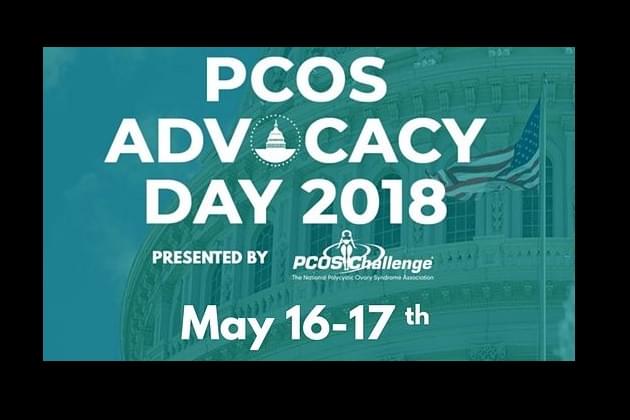
Today, I was going to tell you about Polycystic Ovary Syndrome to create more awareness (because the calendar said today is the day), but instead, I get to share great news about a major research break through that could change my life and yours.
My name is Susan Saunders, and I have PCOS, and it’s horrible. Here are the cardinal symptoms (and I have all of them):
- Hair growth in unpleasant places (called hirsutism)
- Weight gain
- Obesity
- Insulin and glucose imbalance
- Ovarian cysts
- Infertility
- Irregular Menstrual Cycles
- Abdominal Pain
The National Polycystic Ovary Syndrome Association is thee leading 501(c)(3) nonprofit patient support and advocacy organization globally, and it is advancing the cause for women and girls with PCOS serving over 50,000 members.They created the calendar entry listed above and the “PCOS Challenge“, and I encourage you to click HERE to learn more about asking for federal recognition and research funding.
BUT WHAT IS THE GOOD NEWS YOU REALLY CAME HERE TO SEE??????????
Some French researchers think they have discovered the root cause and a possible treatment for PCOS!!!! (Know that I am crying as I am typing this)
From NEWSWEEK:
Researchers in France believe PCOS could be caused by the fetus being overexposed to a hormone known as anti-Müllerian (AMH).
As the syndrome can be hereditary, the team investigated whether high levels of AMH during pregnancy could spark the condition in fetuses. The researchers dosed pregnant mice with high levels of AMH, and found it caused them to have symptoms of PCOS including irregular menstruation, fertility issues, and late puberty. They surmised that the excess levels of AMH promoted brain cells in the fetus to produce too much testosterone.
Scientists at the French National Institute of Health and Medical Research measured levels of the hormone in a cohort of pregnant women with and without PCOS. In the study, published in Nature Medicine, they showed that AMH levels were significantly higher in women with the syndrome.
Using the IVF drug cetrorelix, researchers were able to reverse the induced symptoms of PCOS in the mice. By the end of the year, scientists hope to trial cetrorelix on women with PCOS.
This is not a cure yet, but the strongest hope I have ever had that I could achieve a normalcy with my body that has always been beyond my control with even the strongest of efforts. It is also scientific recognition that some of us have problem that can’t be solved with will power. (So stop your FAT SHAMING!)








